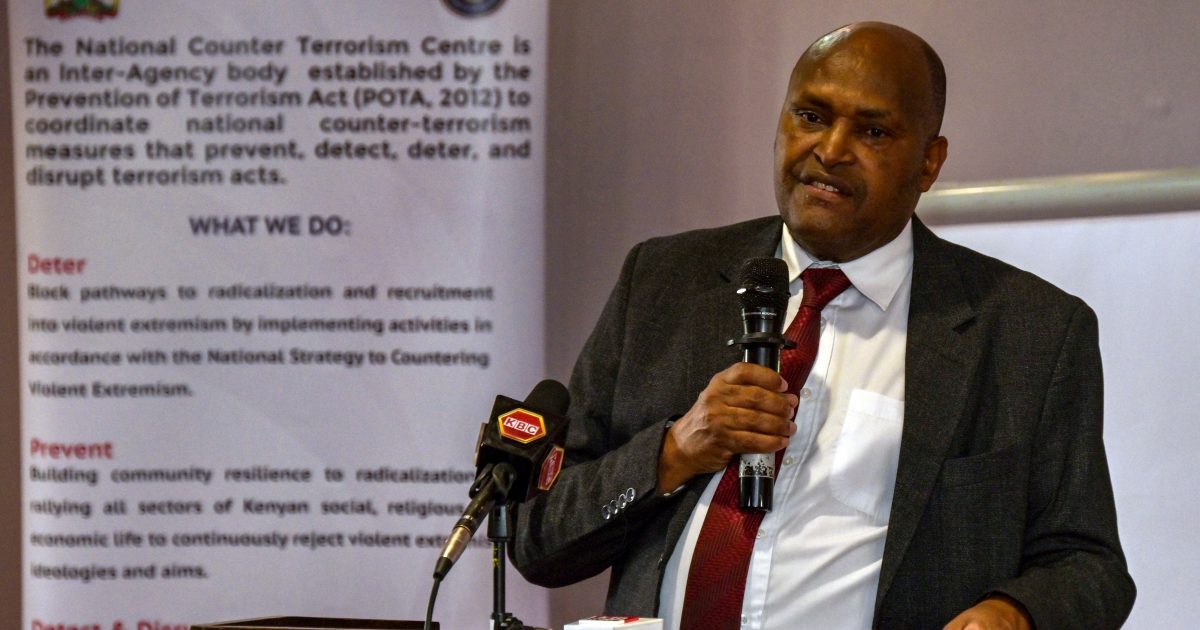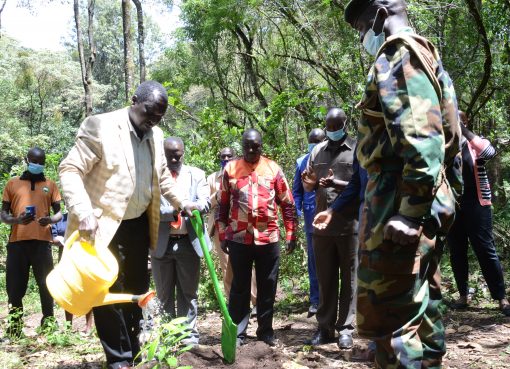The National Counter Terrorism Centre (NCTC) has embarked on the process to review the National Strategy to Counter Violent Extremism (NSVE) document to effectively deal with the global threat.
The NCTC Head of Prevention and Resilience, Mr. Njenga Miiri said the review was critical to keep tabs with the ever evolving nature of threats posed by terrorism and violent extremism after the 2016 document presented challenges.
He said the security actors had deemed it fit to review the current document by harmonizing and synergizing views regarding prevention from different players including security agencies,the private sector and civil society organizations who had raised concerns.
“Inclusivity and the multi-agency approach will enable us to improve the document based on our experience in the seven years we have been using it,” he said, adding that the country was determined to address both domestic and transnational terrorism.
He stated that most of the terror attacks on Kenyan soil had some connection with the international terror cells operating outside this country hence the need to factor the global aspects in the strategic document to effectively cover emerging threats.
He expressed confidence that through the multi-agency approach, Kenya will drain the pool and deny the violent extremists the space to radicalize and recruit within the country.
Mr. Miiri was speaking to stakeholders who had gathered in Nairobi to review the ‘National Strategy to Counter Violent Extremism’, a document that has been in use for seven years.
The participants, who were drawn from Nairobi, Narok, Machakos, Muranga, Kajiado and Kiambu counties, included government officers, non-state actors, civil society organizations, religious leaders, and the private sector.
The Head of Prevention and Resilience said NCTC aims to capture the necessary information regarding violent extremism and terrorism acts to a document that reflects and address their concerns in the wake of shifting dynamic in the war against terror.
Mr. Miiri announced that the information that will be published in the new document will enrich the citizenry’s knowledge besides making them more alert to their environments.
“We have used the current document for seven years; it is now time to look at what has worked and change what has not worked,” said Mr. Miiri.
He said that for the country to avert the the threat of terror and it’s devastating effects, it was prudent to develop policies that were ahead of the enemy by inculcating dynamic, adoptive, responsive strategies to stay afloat in the right trajectory of the war.
Mr. Miiri said stakeholders and members of the public views and feedback were crucial as they would help to fight radicalization, violence, extremism, indoctrination, terrorism, and recruitment.
He at the same time called on members of the public to denounce negative propaganda being peddled by terrorism sympathisers and agents camouflaged under religion institutions and urged devolved units to use their County Action Plans to sensitize communities on how to counter acts of violence, extremism, and terrorism.
Mr. Miiri announced that the NCTC was working on a programme targeting universities after it emerged that terror cells were recruiting and radicalizing students and perpetrating their heinous attacks at some of the institutions of higher learning.
He said the government does not profile any religion, mentioning that those who use religion to perpetrate acts of terrorism were in pursuit of other interests and not religion.
“Those using acts to terrorism exploit the ignorance of the people using religion,” he stated, adding that Ministries, Departments and Agencies have been able to work out strategies that curb exploitation.
In his remarks, the Chief Executive Officer of Eastleigh Business District Association, Mohamed Adan Osman said there was need for the youth to be sensitized on the importance of cohesion and patriotism, since the two are key in safeguarding security.
NCTC is an interagency body established by the Prevention and Terrorism Act to coordinate national counter-terrorism efforts that detect, deter, and disrupt acts of terrorism.
By Bernadette Khaduli




